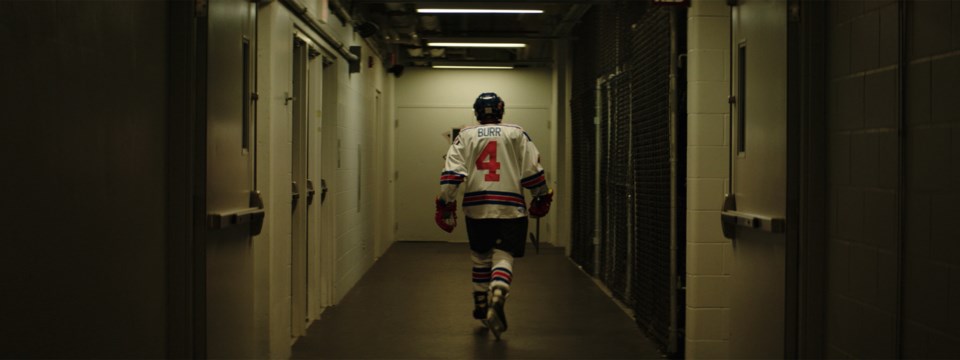Don’t believe the hype: the B.C. film industry is in trouble.
I’m part of the media landscape, so I admit complicity in spreading the narrative that equates the bounty of Christmas movies and superhero shows with industry health.
Yes, it’s good that the service side of the industry is thriving. It’s more than good. As we saw firsthand at the height of the #SaveBCFilm campaign in 2013, the economy suffers when American productions leave town for friendlier tax climes. People suffer.
But a byproduct of the 2013 industry slowdown was a renewed interest in independent films.
I wrote about this phenomenon for the Westender (RIP) in a story about the growth of DIY filmmaking: how unemployed and underemployed film workers used the industry slowdown to pull the trigger on their passion projects.
It was a prolific time for all genres of filmmaking (web series, shorts, documentaries), but especially for feature-length narrative films. In 2013, the Vancouver International Film Festival launched its B.C. Spotlight series, and in 2014, they screened a record 13 locally produced feature films, including Ben Ratner’s beautifully crafted drama Down River, Jason Bourque’s terrifying Black Fly and Ana Valine’s critical hit Sitting on the Edge of Valine. It was the same energy up at Whistler Film Festival. Same wherever feature films by local filmmakers could be found. It was a golden age for people who love locally produced indie films.
By the end of 2014, the service side of the industry had picked up again, and the energy on the narrative feature side changed. At first, I thought I was just imagining things, because the press releases and headlines were telling me that the film industry was healthier than ever. Everyone — especially studios and below-the-line crews — was busy.
But there weren’t as many narrative features being made, even though the ones that were making it to the screen — films such as Mina Shum’s Meditation Park, Ann Marie Fleming’s Window Horses and Kevan Funk’s Hello Destroyer — were phenomenal. At VIFF, the B.C. Spotlight had fewer narrative and documentary features every year: 12 in 2017, 10 in 2018 and then nine in 2019.
It was in the lead-up to 2019 VIFF that I read a stat that chilled my bones. It was in the middle of an article written by Tyler Orton for Business in Vancouver entitled “B.C. talent development gets top billing at Vancouver International Film Festival” that was about the festival’s efforts to nurture emerging filmmakers.
Orton quoted stats from the Canadian Media Producers Association’s (CMPA) Profile 2018 that revealed that domestic film productions from B.C.-based producers fell 74.4 per cent year-over-year to $11 million, while foreign productions skyrocketed 31.5 per cent to $3.04 billion year-over-year.
Orton then reported that Liz Shorten, senior vice-president of operations and member services for the B.C. chapter of the CMPA, had told him the province used to boast a 70/30 ratio of foreign versus domestic productions, but that its since fallen closer to 90/10.
That’s chilling. This is me, sounding the alarm: We need to #SaveBCFilmAgain, folks.
Funders are doing their part, at least as much as they’re able with their own strained coffers. Film festivals are programming films from what’s submitted, and both VIFF and WFF keep rolling out talent generators.
I want the service side to do more to support independent film. I want the American productions that shoot up here to do more than employ people and build infrastructure. I want them to plant seeds in the independent scene that will bear fruit long after their productions have wrapped — to aggressively and actively nurture the independent side. Maybe this is through scholarships. Maybe this is through establishing independent production wings.
You could argue that it’s not the responsibility of service productions to bolster indie voices, but the fact remains that the busier they get on their service side, the more difficult it gets on the independent side.
And I want audiences to care about this. I want audiences to care because these films hold up a mirror to who we are as Vancouverites in a way that a Netflix series or a Hallmark film cannot. We Vancouverites are complicated beings: we are beautiful and ugly and brilliant and fucked up. Films like The Body Remembers When the World Broke Open and Daughter — both highlights of 2019 VIFF — reflect our nuances. These independent narrative feature films are our stories, and our stories matter.
Film workers will tell you that they’d spend more time working on the independent side if the funding, time and audience were there.
There’s no simple fix. Systemic and cultural shifts are required. Let’s begin by identifying that there’s a crisis, and making a concerted effort to watch this work whenever it screens. Also: #SaveBCFilmAgain.


